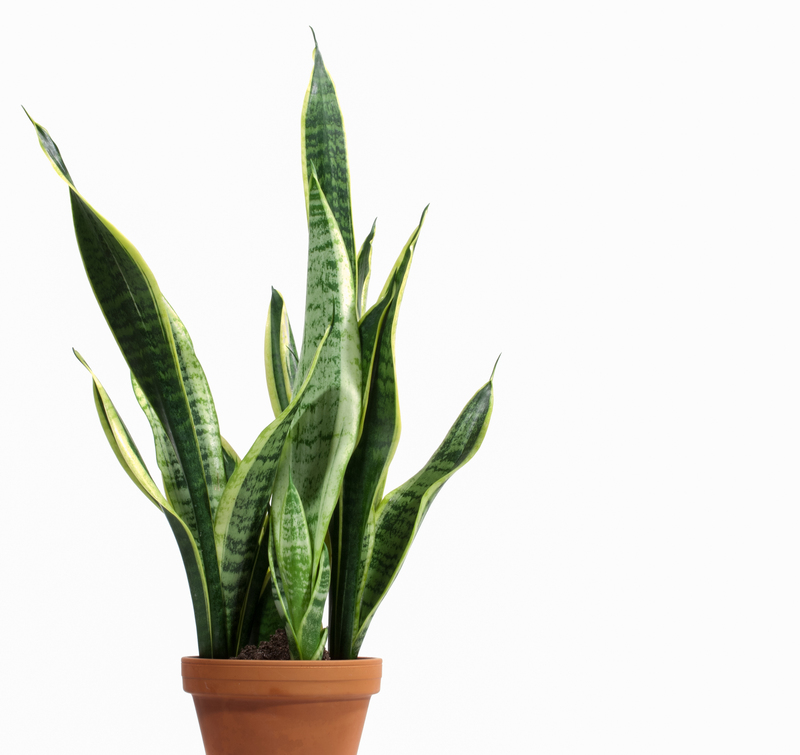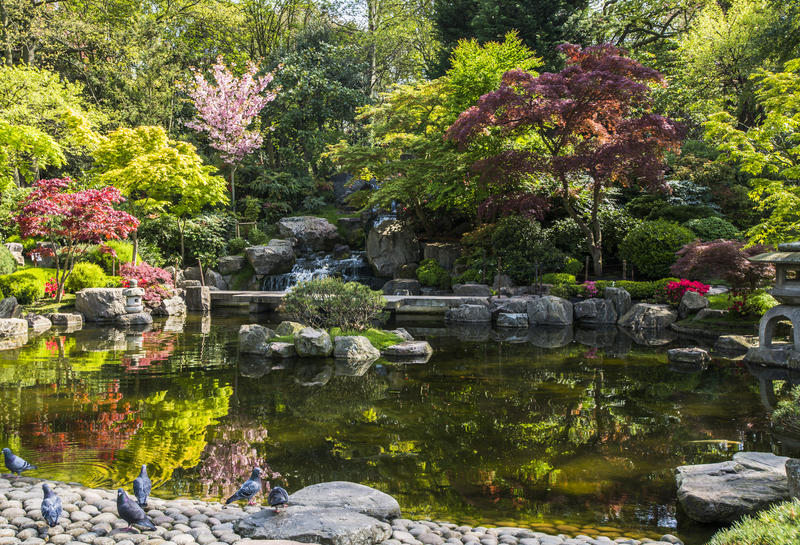Nurture Your Passion with 9 Gardening Tips for Beginners
Posted on 12/06/2025
Nurture Your Passion with 9 Gardening Tips for Beginners
Are you ready to embark on your gardening journey? Whether you dream of growing lush vegetables or vibrant flowers, gardening is a wonderful way to nurture your passion, relax, and connect with nature. This comprehensive guide offers 9 crucial gardening tips for beginners to cultivate a healthy, thriving garden--no matter your starting point. Let's dig in and transform your gardening aspirations into reality!

Why Start Gardening? Unleashing the Joy of Nature
Gardening offers incredible rewards for both body and soul. As you tend to your plants, you'll reap physical, emotional, and even environmental benefits. Beginners often discover that gardening helps reduce stress, increases physical activity, and provides a beautiful, rewarding hobby. Plus, nurturing your own vegetables or flowers means fresher, healthier food or eye-catching curb appeal, making gardening a passion worth pursuing.
Table of Contents
- Choose Your Garden Location Wisely
- Unlock the Secrets of Soil
- Select Beginner-Friendly Plants
- Master the Art of Planting
- Develop the Right Watering Habits
- Feed Your Garden for Growth
- Mulching Magic
- Understand Pest Control Naturally
- Prune and Maintain Regularly
1. Choose Your Garden Location Wisely
One of the most essential gardening tips for beginners is choosing the right spot for your garden. Location can make or break your progress! Most vegetables and many flowers thrive in full sun, requiring at least 6-8 hours of direct sunlight each day. Observe your yard throughout the day to see which areas get ample sun.
- Sunlight: Track sun exposure before planting -- morning sun is gentler, while afternoon sun can be intense.
- Soil quality: Avoid areas with poor drainage or heavy clay unless you plan to amend the soil.
- Accessibility: Place your garden where you can easily reach it with a hose and tools. The more visible it is, the more you'll tend to it!
By thoughtfully selecting the best location, you nurture your gardening passion from the very start.
2. Unlock the Secrets of Soil
*Healthy soil is the foundation of every thriving garden.* Even the most passionate gardener will struggle with poor soil. Testing your soil's pH and nutrient levels ensures the right environment for plant growth. Many local extension offices offer low-cost soil testing.
- Compost: Adding compost improves soil texture, provides nutrients, and encourages beneficial microbes.
- Drainage: Dig a hole, fill with water, and check if it drains within a few hours. If not, you may need to improve drainage by mixing in organic matter or creating raised beds.
- Fertilizer: Use organic options like composted manure or fish emulsion for beginner gardens.
Well-nourished soil means robust plants, fewer problems, and a more rewarding gardening experience for beginners.
3. Select Beginner-Friendly Plants
Not all plants are equally easy to grow! The secret to successful beginner gardening is picking varieties that match your climate, your space, and your experience level. Always check the USDA Plant Hardiness Zone map or consult local nurseries for advice.
- Vegetables: Lettuce, radishes, green beans, and zucchini are easy and fast-growing for most regions.
- Flowers: Marigolds, zinnias, sunflowers, and nasturtiums add color and are forgiving for new gardeners.
- Herbs: Basil, parsley, and chives grow well in containers or small beds.
Choosing the right plants will boost your confidence and nurture your love for gardening from seed to harvest.
4. Master the Art of Planting
Planting correctly is vital. Here's a key beginner gardening tip: don't plant too deep or too shallow, and always give each plant enough space to grow. Overcrowding leads to poor air circulation and increases disease risk.
- Seed packets: Always read instructions for proper depth and spacing.
- Transplants: Gently loosen roots before planting. Water thoroughly afterward.
- Rows or blocks: Group plants with similar water and sunlight needs for efficient care.
A little extra care during planting pays off with stronger, happier plants--a great way to nurture your gardening passion.
5. Develop the Right Watering Habits
Watering is an essential gardening skill for beginners. Most plants prefer deep, thorough watering a few times a week over light daily sprinkling. Early morning is the best time to water, reducing evaporation and giving plants time to dry before nightfall.
- Check the soil: Stick your finger 1-2 inches in--if it's dry, it's time to water!
- Avoid leaves: Direct water at the soil, not the foliage, to minimize fungal diseases.
- Mulch: Retains moisture and reduces watering frequency.
Proper watering routines help your garden thrive while conserving resources and preventing common problems.
6. Feed Your Garden for Growth
Just as you need nutrients to stay healthy, so do your plants. Beginner gardeners should fertilize their plants to ensure vigorous growth and healthy yields. Use organic fertilizers or compost for a natural approach.
- Granular fertilizers: Easy to apply at planting time, offering slow-release nourishment.
- Liquid fertilizers: Good for a quick nutrient boost during active growth phases.
- Fish emulsion or seaweed extract: Excellent for container gardens and young seedlings.
Strong, well-fed plants have improved resistance to pests and disease, an essential part of nurturing your gardening journey.
7. Mulching Magic
Mulching is one of the top gardening tips for beginners. It helps suppress weeds, conserves soil moisture, and stabilizes soil temperature. Organic mulches --like shredded bark, straw, or leaves--also add nutrients to the soil as they break down.
- Apply mulch: Spread a 2-3 inch layer around plants, keeping a gap around stems to prevent rot.
- Renew as needed: Mulch decomposes over time--refresh each season for maximum benefits.
- Bonus: Mulch can make your garden look tidy and inviting!
Mulching is a beginner-friendly step that nurtures your passion by making care easier and plants healthier.
8. Understand Pest Control Naturally
Dealing with pests is a reality for every gardener--but you don't have to rely on harsh chemicals. Integrated pest management (IPM) is a beginner gardening strategy focusing on prevention and natural control.
- Companion planting: Marigolds, basil, and nasturtiums repel common pests naturally.
- Hand-picking: Remove larger pests, like slugs and caterpillars, by hand early in the day.
- Encourage beneficial insects: Ladybugs, lacewings, and birds help keep bad bugs in check.
Focusing on organic and natural pest control protects pollinators and the planet, helping your garden--and your passion--thrive.
9. Prune and Maintain Regularly
Regular maintenance is key to a successful beginner garden. Pruning not only keeps plants attractive but also encourages stronger growth and improved yields.
- Remove dead or diseased parts: Stops the spread of problems to healthy plants.
- Train your plants: Use stakes, cages, or trellises for support and better air flow.
- Observe often: The more you visit your garden, the sooner you catch potential issues.
Routine care transforms your garden into a beautiful, productive space--nurturing your gardening interests season after season.
Bonus Gardening Tips for Beginners
- Start small: Focus on a manageable plot or containers to build confidence and skills.
- Keep a gardening journal: Record successes, setbacks, and inspirations for next year.
- Continuous learning: Read, join online forums, attend workshops, and don't be afraid to experiment!

Frequently Asked Questions About Gardening for Beginners
What is the easiest vegetable to grow for beginners?
Radishes, lettuces, beans, and zucchini are quick, resilient, and highly productive, making them perfect for beginner gardeners.
How often should I water my beginner garden?
Generally, most vegetables and flowers need about 1 inch of water per week. Always check soil moisture and adjust for rainfall or heat.
What gardening tools do I need to get started?
- Basic hand trowel
- Pruner or garden scissors
- Watering can or hose
- Garden gloves
- Spade or shovel (for larger plots)
Conclusion: Grow Your Gardening Passion from Roots to Blooms
By following these 9 essential gardening tips for beginners, you will nurture your passion from the very first seed you sow. Gardening enriches your life with beauty, nourishment, and serenity. Remember: start small, learn as you grow, and savor every leafy, blossoming step. As your knowledge and confidence bloom, so will your garden -- and your lasting love for the natural world.
Ready to nurture your gardening dreams? Gather your gloves, choose your seeds, and let this be the start of a green, flourishing new adventure!
Latest Posts
Starting Out Right: Reviving a Neglected Garden
Why container gardening is perfect for urban dwellers
Enriching Our Gardens by Harvesting Waste
Herb gardening for all seasons: strategies for year-round growth

